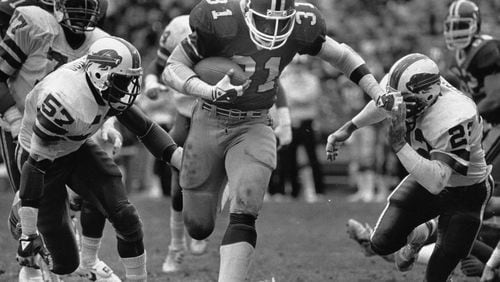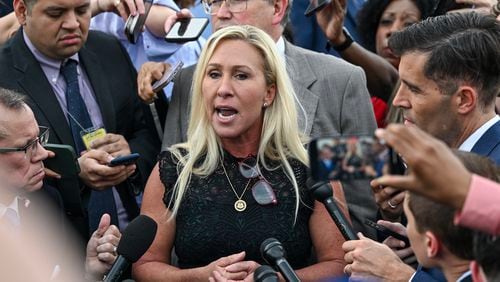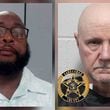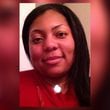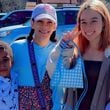What he did: When reviewing those that have played running back for the Atlanta Falcons in the last 50 years, none hit harder than William Andrews. That was evident in the swing pass he took from quarterback Steve Bartowski in a 1982 game at Denver, when he ran over a Broncos defensive back on the way to an 86-yard touchdown. Hall of Famer Ronnie Lott, one of the greatest defensive backs ever to play, said the hardest hit he ever took was from Andrews.
Although the YouTube video of Andrews running over Steve Wilson is still popular 33 years after the fact, many forget Andrews played only six full seasons in the NFL.
It started back at Thomasville High School in Andrews hometown. As a junior, he led the Bulldogs to a 13-0 record and a memorable Class AAA state championship win over Wheeler, 40-35. In his senior season, Thomasville faced Lakeside-DeKalb in the finals and the Vikings tried to get into Andrews’ mind by bringing a casket to the game draped with a replica of his Thomasville jersey. It didn’t work. The Bulldogs won 26-20.
Andrews had a wide choice of colleges and decided to go to Auburn where he spent most of his career as a blocking fullback for future NFL greats James Brooks and Joe Cribbs. In three years on the Plains, Andrews rushed for 1,347 yards on a 267 carries and was not a hot prospect going into the 1979 draft. The first running back picked that year was Otis Anderson (eighth overall), who went to St. Louis. Andrews was finally taken in the third round by the Falcons as the 79th pick overall.
He quickly made an impression in Atlanta, rushing for 167 yards against New Orleans in his NFL debut and finished that rookie season with 1,023 yards. In the next season, when the Falcons went 12-4 and appeared as if they may be headed to the Super Bowl before losing a late lead to Dallas in the playoffs, Andrews had 1,308 yards and also caught 51 passes for 456 yards.
He made his first of four straight Pro Bowl appearances. Andrews would join an elite club of running backs to surpass 1,000 rushing yards in his first three seasons, which included Anderson, Tony Dorsett, Earl Campbell and John Brockington.
His best season came in 1983 when his 1,567 rushing yards ranked second in the league. He also had 59 receptions for 609 yards and was named All-Pro for the fourth time.
But in the preseason of 1984, he sustained a serious knee injury that included extensive nerve damage and it kept him out of action for two full seasons. Andrews was operated on by renowned Birmingham orthopedic surgeon Dr. James Andrews, the two becoming very close through his recovery.
He came back for one last season in 1986, getting only 52 carries while also playing tight end before retiring.
Andrews broke 19 Falcons team records and was just the second running back in NFL history to have two 2,000-yard (combined yards) seasons. The first was O.J. Simpson. In his first five seasons, Andrews had more total yards (8,382) than any other player in the league.
Andrews was admitted into the Falcons Ring of Honor in 2004, his No. 31 was retired by the team and he also is in the Georgia Sports Hall of Fame (1996).
Where he lives: Along with his wife Gladys of 17 years, Andrews, 59, lives in Alpharetta. He has six children, five boys and one girl: Kevin, Michael, William Jr., Micah, daughter Khea and Justin. William Jr. played football at Gardner-Webb while Micha played at Wake Forest.
What he does now: Andrews says he enjoys life, spending much of his time with his 12 grandchildren who call him "Pop Pop."
On his recent heart procedure: "I feel really good now. It's been about six weeks and I spent a week in the hospital at Gwinnett Medical. I'm back.''
On his high school days in Thomasville: "We had great teams and some really good coaching. I had a coach there that always was telling me I needed to learn how to block and catch the football and I would become so much more of a complete back. You don't see that these days. They all have specialties.''
On Lakeside bringing the "Andrews" casket to the state championship game his senior year: "I was wondering, what is that? As I remember, I ran for more than 150 yards in that game.''
On choosing to go to Auburn: "I had a chance to go to Georgia. But I really felt the coaches up there looked at me as a commodity and not a person. I looked at Alabama but they seemed to have their running backs set in place. I liked Auburn. It was a good place for me, though I didn't get to run the ball that much.''
On playing with Brooks and Cribbs: "They both were really good and looking back, they probably helped extend my career. I didn't get that beat up in college because I didn't run the ball that much. I'll tell you, I really learned how to block because those two backs were right behind me right away every time they got the ball.''
On the one college game he will always remember: "It came against Georgia (1978) and it ended in a 22-22 tie. They didn't have overtime back then and the first half ended when the officials said my knee was down on the one-inch line. I thought I was in the end zone. It would have changed the outcome.''
On his rookie season with the Falcons: "So I got my chance to be the main back and took advantage of it. I was so much more of a complete back when I got to the NFL. Also, we had some really good blocking when I was at the Falcons. I had a lot of big holes to run through.''
On playing in the backfield with Gerald Riggs: "Gerald was a complete player — speed, power and good moves. We didn't get out of the field very much together but when we did, it was pretty awesome.''
On the knee injury that eventually ended his career: "It was tough because there was a lot of nerve damage in the knee and it takes a long time for the nerve to grow back. I had a great doctor in Dr. Andrews and it was big just getting back on the field. But after 1986, the Falcons said I could stay and take a diminished role and I didn't want that. I saw the handwriting on the wall so I retired.''
On the current Falcons team: "They have gotten off to a great start and when they get a few more players to fill in a slot here and there, they are going to be really good. I really like Devonta Freeman. He reminds me of having the speed of Warrick Dunn and the brute strength of Gerald Riggs.''
On what he does these days: "I really enjoy time with all my grandkids. They keep me busy and I get a big kick out of telling them what I used to do and showing them old films. I am lucky.''
About the Author
